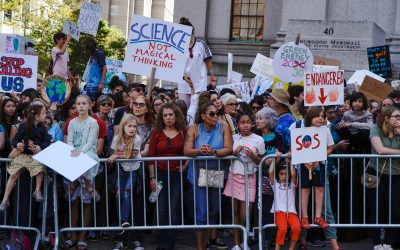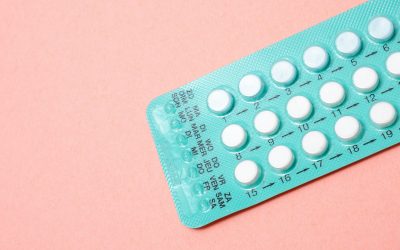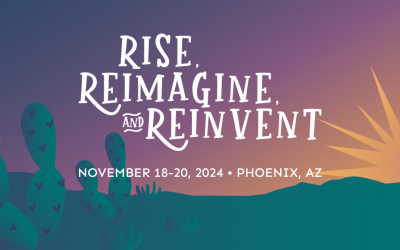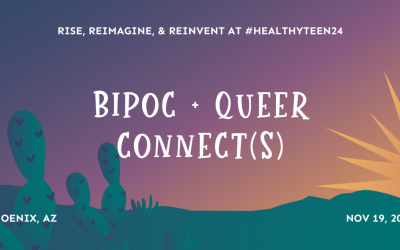
There were some small wins in this midterm election. They might help us get a little bit close to dismantling the patriarchy and adjusting an imbalance of power.

By Gina Desiderio
September 28, 2018
Today, I choose to be hopeful.
Maybe it’s naïve. Maybe it’s a protective mechanism. Maybe it’s because I just want to make an obscene gesture to white male privilege (I also chose to wear my “Nasty Woman” t-shirt today). But today, I choose to be hopeful.
It’s certainly not easy to do. Our Supreme Court balance is about to turn in a direction that will shift the balance away from human rights, civil rights, reproductive justice, environmental protections, checks on executive privilege, protections for citizens and workers.
We’ve had almost two years of bad news after bad. Immigrants are being separated from their families, refused asylum, and rounded up as they go to school or work, or try to access health care. Our international relations are a disgrace, and we have lost our place as a world leader. Some of the progress we have seen toward LGBTQ+ rights is being eroded. Environmental protections and rules have been rolled back, and we’re refusing to accept science and climate change. People still don’t understand why we have to say “Black Lives Matter.” Women’s right to access safe and legal abortion continues to be severely limited based on the state you live in. Basic access to contraception is at risk. We don’t know how much longer we will have health care for all Americans. Corporations can dictate the tax breaks they want, while working people’s wages fail to rise. Our schools and communities still don’t have basic protections from gun violence. There are some who would like to eat away at public education. Courts of all levels are being stacked with judges chosen based on ideology and partisan politics. Funding for social supports and critical programs, like sex ed, are constantly at risk. We aren’t seeing much in checks and balances for executive power. And so much more…it’s not good.
We need these conversations so more people “get it,” to help us garner support for sex ed.
So yea, I do have to choose to be hopeful. Why am I hopeful?
I’m hopeful because maybe things are changing, ever so slowly. #MeToo gives me hope. Dr. Christine Blasey Ford’s testimony, as her own witness and professional expert, gives me hope. Even Brett Kavanaugh’s rage gives me hope. Maybe he is so angry because he both doesn’t remember what he did in his drunkenness and also because he knows that kind of behavior wouldn’t have been so out of character for him. And maybe because he also doesn’t get it—why what Dr. Ford says happened is indeed sexual assault. And because it’s the first time his white male higher socioeconomic status privilege has ever been challenged. On top of partisan politics, these are likely the same reasons many Republicans are so angry.
All my personal conjecture of course. But I’m hopeful because at the very least, this is news. And we’re having conversations about consent and sexual assault, and what they are. And also conversations about privilege.
We need these conversations so more people “get it,” to help us garner support for sex ed—comprehensive sex ed that addresses assault and consent and helps prepare young people to know how to navigate the complicated world of relationships, as well as learn how to form and maintain healthy relationships.
It might not be enough, maybe not now. I’m sure people felt the same 27 years ago during the Clarence Thomas/Anita Hill hearings, in 1991. I’ve heard a lot of talk on public radio about how 1992 was the “Year of the Woman,” when more new women were elected to Congress than ever before. So maybe it’s just a moment in time. But it’s happening again—more women are running for the 2018 mid-term elections—and only time will tell if it is another blip or a lasting trend.
I’m also hopeful because there are some checks and balances…we saw that in the fight for the Teen Pregnancy Prevention Program federal funding, where judge after judge ruled that the early termination of the funding was arbitrary, capricious, and contrary to law. Neither can the Trump administration change the criteria used to secure funding, in order to choose ideology over science to fund abstinence-only sex ed instead of evidence-based programs. These might be small wins, but they are wins nonetheless…and they were huge wins for the field of adolescent sexual and reproductive health.
So today, I choose to be hopeful. I hope we’re living another small step in challenging the patriarchy and adjusting the imbalance of power. And I don’t know about you, but right now, I need some hope because I certainly won’t stop being angry. But hope helps me in #StandingStrong.
Gina Desiderio, MA, is Director of Communications for Healthy Teen Network and oversees all of our communications and dissemination. Working here has only sometimes prepared Gina for spontaneous sex-positive conversations with her two young sons. Read more about Gina.











